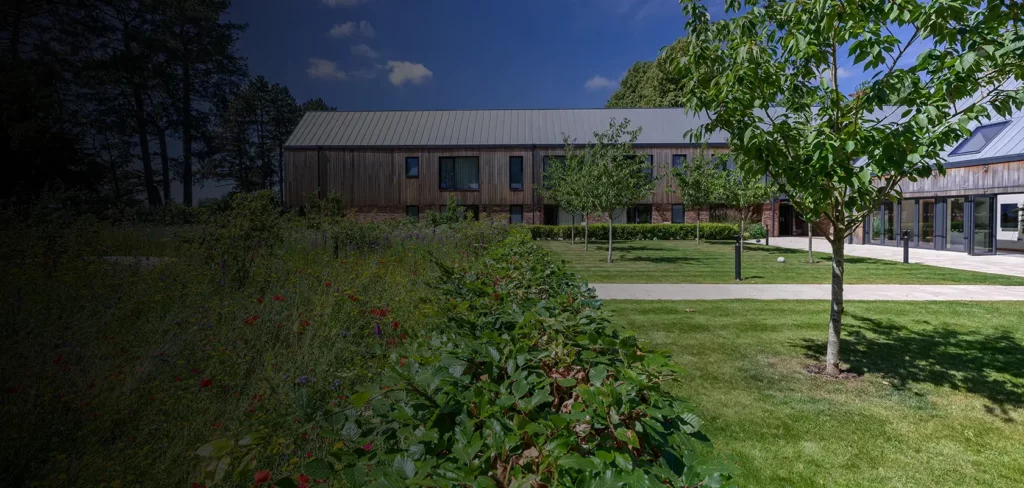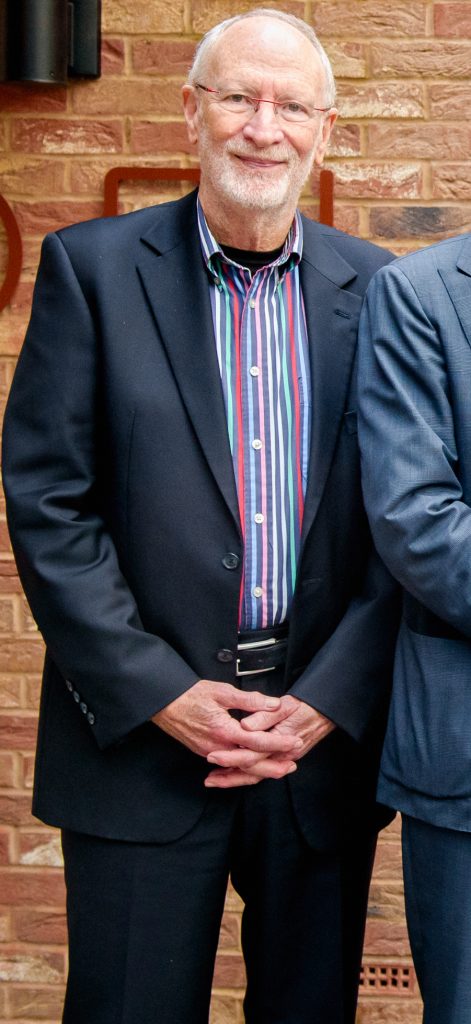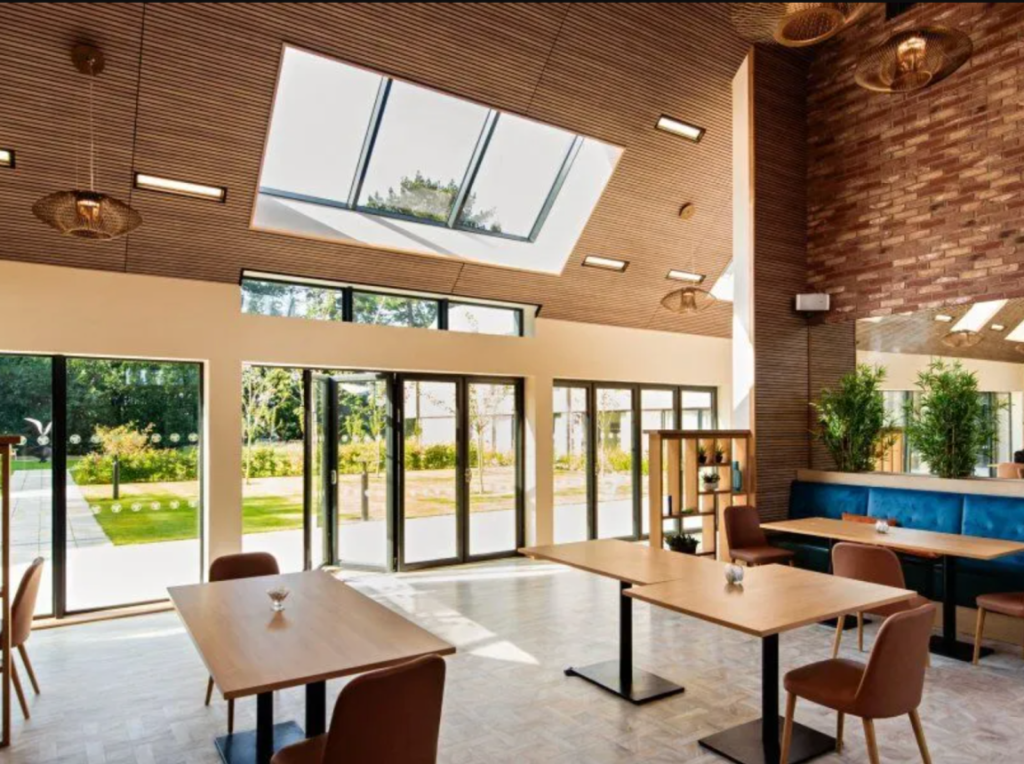“We all need to get away from time to time from problems we have. Whether that’s addiction problems, work-life balance issues, or excessive pressure on you. This is the perfect facility for that purpose.”
Food Addiction & Eating Disorder Treatment
Eating disorders are often complex and the consequences can be devastating for all involved; the sufferer and their loved ones.


Food addiction help at Delamere
Eating disorders are often complex and the consequences can be devastating for all involved; the sufferer and their loved ones. Whilst acute eating disorders often require a hospital setting, its not unusual that people who come to stay with us have a challenging relationship with food as well as addiction or mental health difficulties.
At the start of a guests stay, our on-site medical team complete a thorough assessment to support guests physically. The second phase of treatment looks at the underlying factors that drive behaviours, offering activities such as somatic healing, both 1-1 and group therapy sessions, and creative arts as part of our approach.
What makes Delamere different?
“I didn’t have trouble with alcohol or drugs but the therapist, mentors and staff helped me greatly in my depressed state. I can honestly say I became a better, happier person.” – Michael Theodorou, Former Delamere guest
View Our Treatment Model View our Environment Call now: 0330 111 2015
When to seek eating disorder treatment
Each eating disorder has its own set of drivers, complications, and health risks. Thankfully, with the right help and support, eating disorders are treatable and you can build a healthier relationship with food.
People typically come into a rehab centre when their relationship with food has become dangerous to their health both physically and mentally. Suffering from an eating disorder can also quickly and easily lead to alcohol addiction or drug addiction. Often when people uncontrollably eat or purge after eating, they feel guilt and shame and want to hide away from the world. This can lead them to self-medicate to mask these feelings, creating a whole new set of problems to deal with. Similarly, eating disorders are normally accompanied by a number of mental health complications too.
It’s for this reason that our approach at Delamere is person-centric, treating the whole person rather than just the symptoms they present with.
All eating disorders have psychological issues at their root driving behavioural complications and creating all kinds of physical health problems. There are many different types of eating disorders but the three most common are:
- Anorexia nervosa.
- Bulimia nervosa.
- Binge eating disorder.
Whilst the signs and signs and symptoms of a food addiction or eating disorder are varied, there are some common clues including:
- Eating very infrequently/not at all or eating much more than intended.
- Looking pale, thin, or ill.
- Feeling guilty or shameful after eating or purging.
- Regularly using food as a coping mechanism.
- Hiding eating from others.
- High harm avoidance tendencies.
- Repeatedly failing at increasing/limiting your eating.


The Delamere approach to food addiction rehab
An inpatient stay at Delamere is a deliberately intensive 4-phase food addiction rehab programme, one which we have crafted over time and has helped many participants recover. Our emphasis is on holistic care to treat addiction and associated issues. This means that we treat the whole person rather than just the symptoms they present with. We believe that successful treatment runs far deeper than simply stopping the addictive substance or behaviour.
Our approach at Delamere comprises 4 core phases: Stop, Start, Grow, & Bloom. Everything we offer at Delamere aims at effective and lasting outcomes in addiction treatment:
We understand exactly how difficult it can be to get someone to accept they have a challenging relationship with food. If you are looking for help for a friend, working with someone, or living alongside someone who is displaying signs of addiction or disordered eating, we’re here to support you. At Delamere, we provide family support services as well as intervention services and help your loved one confront the problem and any denial surrounding it.
If you are considering organising an intervention for your loved one, friend, or colleague, contact Delamere today.
Frequently asked questions about eating disorder treatment
Our holistic approach to treatment and recovery means understanding the root cause of the addiction and any underlying mental health issues, not just addressing the physical aspects. Without this, the addiction will always remain.
We have a highly experienced, friendly admissions team, just a phone call away to discuss any queries, concerns, or doubts that you may have about getting help with a food addiction or eating disorder, whether for yourself or a loved one.
Call the team today on 0330 111 2015 to get the support you need.
Let us help you today
Start your recovery journey by contacting us today.
Confidential. Straightforward. Friendly.
Help and Support for Food Addiction Recovery
-
Behavioural Addiction
Learn more about our approach to behavioural addiction. Visit Behavioural Addiction
Discover more advice on the Delamere blog
-
Is the UK experiencing a gambling addiction crisis?
Is the UK experiencing a gambling addiction crisis? New research by the University of shows young gamblers 4x likelier to attempt suicide.
-
The rise of shopping addiction in the UK
Since the pandemic shopping addiction has doubled; 10% of the population has a shopping addiction. Delamere looks into the signs & how to manage it.
-
Setting Boundaries with your Smartphone
Students will spend 25 years of their lives on their smartphones if current screen time habits continue. Delamere gives tip on how to set boundaries with your smartphone.
-
How digital detoxes can help to reconnect
People are struggling with social media, phone, and internet addiction. Discover how digital detoxes can help to unplug and reconnect.





















